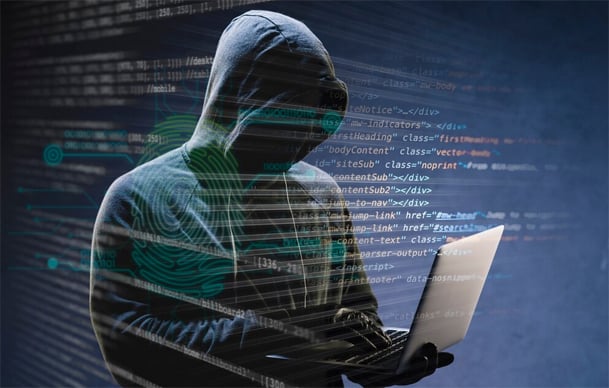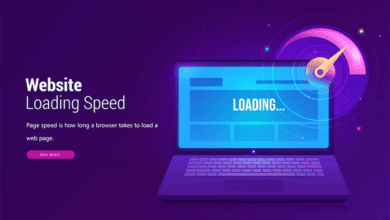
The internet has brought many possibilities and forever changed how we do business and live our lives. Nowadays, having a stable high-speed internet connection is essential for many of us. We no longer have to rely on slow dial-up connections. We do many things online, like paying bills, checking bank statements, emailing, finding information, and being active on social media.
Today, popular search engines like Google, Bing, and DuckDuckGo only index part of the internet. The part of the internet we use every day is called the clear or surface web. However, there are hidden parts of the internet that require some preparation to access. These sections are deep and dark. The dark web is a hidden part of the internet that is encrypted and not searchable by regular search engines. To access it, you need a particular configuration or authorization.
Here’s a simple guide to understanding and accessing this other internet.
What is the difference between the clear, deep, and dark web?
The clear or surface web is the visible and easily accessible internet layer. You can access it using Safari, Chrome, Edge, or Firefox.
The dark web, or the deep web, is the hidden part of the internet that search engines can’t find. The deep web has websites and pages with password protection, private forums, and personalized resources.
Search engine crawlers cannot index these pages. To access a website on this part of the internet, you need to have the exact link. Some examples of limited access or resources could be government services for accessing records, healthcare services, exclusive areas for members, intranets, or corporate resources.
To access the dark web, you need special software.
Is the dark web only for criminals?
The dark web is often talked about online in connection with illegal marketplaces and arrests by law enforcement.
On the dark web, there are thriving markets for drugs, weapons, stolen intellectual property (IP), and data. These markets offer vast amounts of information for sale, often in terabytes. Traders profit from stolen credit card data, access points to vulnerable systems, credentials, and intellectual property taken during cyberattacks.
The dark web has many uses for organizations and individuals beyond what a few criminals do on it.
To access a dark web address, you need a VPN and a browser like Tor. The goal is to minimize your online presence, hide your traffic, and conceal your location.
The dark web has legitimate purposes for services and communication. It can include tools that help fight censorship and protect privacy. These tools are essential for people in countries with strict government surveillance. They also have anonymous email and whistleblower drop boxes.
Media outlets sometimes have a presence on the dark web when their regular websites are blocked. Similarly, other websites also use the dark web when countries ban them during times of unrest.
The dark web is known for its bad reputation. Staying anonymous is important for protesters, civil rights groups, journalists, lawyers, and other vulnerable groups. Illegal marketplaces are just a small part of the overall picture.
How do I access the dark web?
To access dark web resources, follow these steps.
First, it is strongly recommended that you install a Virtual Private Network (VPN). To enhance your privacy, use a browser like Tor. It connects through nodes and proxy servers, making traffic requests more secure and anonymous. The Tor browser can access special domain names with the suffix .onion on the dark web.
1. Invest in a VPN
A VPN hides your location and prevents online traces that could reveal your identity. When you use a VPN, your connections are encrypted, which keeps you safe from eavesdropping and man-in-the-middle attacks. With VPNs, you can choose where your location appears to be, and they use servers and relays to make it hard to trace your IP.
VPNs can be used to access geo-locked content on streaming services. Paid-for and subscription-based VPN options are the best choice. Free options often slow down your speed or collect your data.
2. Download the Tor Browser – Free Dark Web Browser
To download the Tor Browser, which protects your online privacy by preventing fingerprinting, bypassing website blocks, and blocking trackers from profiling your browsing habits, visit the Tor Project website.
The Tor Browser enhances your anonymity by using multiple layers of encryption. It also includes the DuckDuckGo search engine, which prioritizes your privacy by not storing or tracking your search queries. To ensure a secure experience, check the settings and choose the “safer” or “safest” options. These options turn off potentially harmful website features like rogue JavaScript.
The Tor network is run by many volunteers around the world. They manage the proxy servers that keep your identity safe. You can get the Tor Browser for Windows, MacOS, Linux, and Android.
To access the Tor network on your iPhone or iPad, use the Onion Browser app. The app uses DuckDuckGo as its primary search engine and is supported by the Orbit framework for secure access to the Tor network.
Using a VPN and Tor together is recommended for maximum protection. It’s best to connect through a VPN to Tor rather than vice versa.
After downloading and installing the browser, click on “Connect”. Tor takes longer to connect than other browsers because it routes your traffic through different nodes. Keep in mind that overall speeds may be slower. For example, a page might take a few seconds longer to load than usual.
3. Find the .onion address you want to access
To access a dark web resource, you must know its web address. These websites will also have .onion domain names, which can be long and contain random letters and numbers. Standard search engines cannot access .onion addresses because crawlers do not index them.
Be careful when using directories with .onion links and websites. There are two types of websites: commercial and non-commercial. Commercial sites sell things like drugs and fake passports, while non-commercial sites have legal content like education workshops, forums, and personal blogs.
The internet includes DefCon, ProPublica, the CIA, libraries, and open-source software providers.
Is it legal to access the dark web?
In most countries, accessing dark web resources is legal. Just remember that. Using the dark web for criminal activities is against the law.
If you browse the dark/deep web without proper protection, you might attract attention or investigation, even if there’s no evidence of your involvement in illegal activities or purchases.
What should I be wary of?
If you don’t know where to find a legal and legitimate website, there are risks you should be aware of. Some examples are:
1. What can you buy on the Dark web
If you come across an underground marketplace, you’ll find a wide range of things for sale, like drugs, weapons, fake documents, stolen information, and malware. Using the dark web and cryptocurrency for purchases doesn’t guarantee that you won’t be tracked down.
2. Scams
If you try to buy something illegal online, you might get scammed. Sellers can be deceptive.
3. Visits to extreme content
Finding extreme or abusive content can lead to an investigation by law enforcement, but it’s only likely if you actively search for it. Downloading such content is usually illegal.
4. Malware
Like the clear web, the dark web also has sites and resources that can contain harmful software meant to harm your PC or mobile device. Malware includes information stealers, Trojans, ransomware, and exploit kits. You might encounter phishing attempts, too.
Do I have to use a VPN?
Yes, you should. Using a VPN is a good idea to avoid being tracked by governments, companies, and advertisers. If you care about your privacy and want to switch from a regular browser to Tor, it’s essential to choose a reliable VPN.
In countries like China, they use the “Great Firewall” to block certain websites and also monitor their citizens’ internet activity through their Internet Service Providers (ISPs). If you use Tor, your usage of it might still be recorded. Using a VPN can help hide your use of Tor and your visits to dark web resources.
Can a VPN and Tor make the dark web completely private and secure?
No. Although strong encryption, virtual private networks (VPNs), proxy servers, and concealed web addresses may enhance one’s sense of anonymity, no single system presently exists that guarantees absolute privacy and security.
Being concealed does not provide absolute protection against the possibility of being tracked or, in the case of illicit activities, from danger. However, in a world of surveillance, personalized ad tracking, and bulk data collection, it is our responsibility to protect our privacy. You should at least consider getting a VPN.
Final Words
The dark web is a secret part of the internet that can only be accessed using a special web browser. It helps keep internet activity private and anonymous, which can be useful for both legal and illegal purposes. Some people use it to avoid government censorship, but it can also be used for illegal activities.



